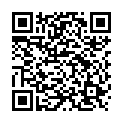|
|
|
| Module code: BAITM-330 |
|
6V (6 hours per week) |
|
6 |
| Semester: 3 |
| Mandatory course: yes |
Language of instruction:
German |
Assessment:
PC-based written exam
[updated 20.03.2010]
|
BAITM-330 International Tourism-Management, Bachelor, ASPO 01.10.2008
, semester 3, mandatory course
|
90 class hours (= 67.5 clock hours) over a 15-week period.
The total student study time is 180 hours (equivalent to 6 ECTS credits).
There are therefore 112.5 hours available for class preparation and follow-up work and exam preparation.
|
Recommended prerequisites (modules):
None.
|
Recommended knowledge:
None. BAITM-330 is a basic IT course.
[updated 20.03.2010]
|
Recommended as prerequisite for:
BAITM-430 Computer-Assisted Accounting
BAITM-530 Information, communication and reservation systems
[updated 02.03.2011]
|
Module coordinator:
Prof. Dr. Stefan Selle |
Lecturer:
Prof. Dr. Thomas Bousonville
Prof. Dr. Stefan Selle
Lehrbeauftragte
Prof. Dr. Enrico Lieblang
[updated 20.03.2010]
|
Learning outcomes:
- Students will be able to create a simple relational database
- Students will appreciate how and when spreadsheet systems are used and will be able to transpose problems so that they can be solved using a spreadsheet program
- Students will have become acquainted with the common applications Excel and Access
[updated 20.03.2010]
|
Module content:
Spreadsheet applications
- Working with tables, formatting, functions, formulae, diagrams
- Pivot tables, scenarios, data consolidation
Database applications
- Designing databases
- Designing data models, queries, reports
[updated 20.03.2010]
|
Teaching methods/Media:
Lecture and PC-based practice sessions
[updated 20.03.2010]
|
Recommended or required reading:
- Handbücher des RRZN (Regionales Rechenzentrum für Niedersachsen / Universität Hannover 2001):
- Access 2002: Grundlagen für Datenbankentwickler, 2002
- Excel 2002: Grundlagen Tabellenkalkulation, 2002
- Excel 2002: Fortgeschrittene Anwendungen, 2002
- Schwarze, Jochen : Einführung in die Wirtschaftsinformatik, 5. Auflage, nwb-Verlag, Herne/Berlin, 2000
- Gumm, Heinz-Peter, Sommer, Manfred: Einführung in die Informatik, 5. Auflage, Oldenbourg, Münshen 2002
- Fischer, Joachim et. al.: Bausteine der Wirtschaftsinformatik, 2. Auflage, Erich Schmidt Verlag, Berlin, 2000
- Abts, Dietmar; Mülder, Wilhelm: Grundkurs Wirtschaftsinformatik, 1. Auflage, Vieweg, Braunschweig/Wiesbaden 1996
[updated 20.03.2010]
|


